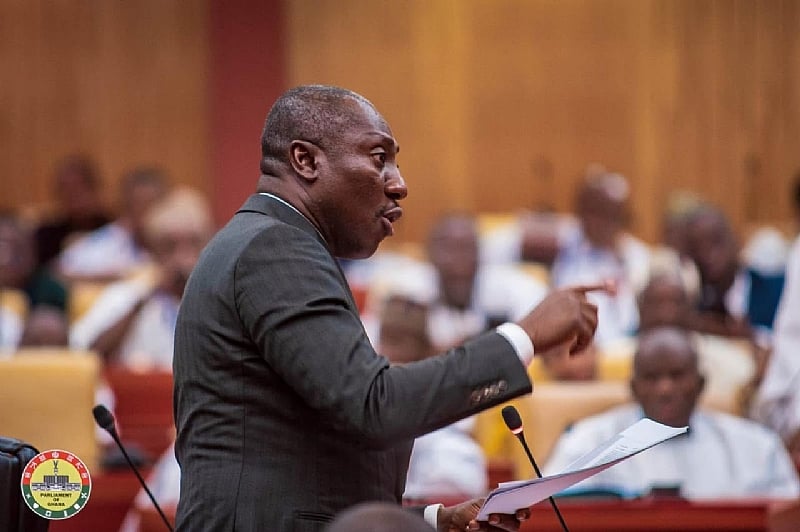A Broken Social Contract: Assessing the Mahama Administration’s First 120 Days
The Minority Leader in Parliament, Alexander Afenyo-Markin, has launched a scathing critique of the Mahama-led National Democratic Congress (NDC) government, accusing it of a profound failure to deliver on its pre-election promises, particularly in the crucial area of job creation. Afenyo-Markin, presenting the Minority Caucus’s assessment of the government’s performance during its initial 120 days, characterized the NDC’s tenure so far as a period of unfulfilled pledges, worsening economic conditions, and deceptive pronouncements aimed at misleading the public. He argued that the government’s actions, or lack thereof, represent a clear breach of the social contract it implicitly established with the Ghanaian people during the 2024 election campaign.
Central to Afenyo-Markin’s critique is the NDC’s failure to address the pressing issue of job creation. He pointed out that the numerous pre-election pledges to create employment opportunities have remained largely confined to press releases and public pronouncements, with little tangible action on the ground. The ongoing struggles of various industries, coupled with what he termed "Dumsor Pro Max" – a reference to the persistent and intensified power supply challenges – have exacerbated the already difficult economic environment, further hindering job creation and economic growth. The Minority Leader argued that this unfolding crisis demonstrates a stark disconnect between the government’s rhetoric and its actual performance, leaving many Ghanaians who voted for the NDC feeling disillusioned and betrayed.
Afenyo-Markin also took aim at the government’s failure to deliver on its promise to increase the farmgate price of cocoa, a critical issue for Ghana’s agricultural sector and the livelihoods of countless cocoa farmers. The NDC had pledged to raise the price from GHS3,000 to GHS6,000 per bag, a commitment that resonated strongly with cocoa farmers. However, the absence of any concrete steps to implement this promise has generated frustration and resentment within the farming community, further eroding public trust in the government’s ability to deliver on its commitments.
The Minority Leader further dismissed the government’s attempts to portray the recent gains made by the Ghanaian Cedi as an indication of sound economic management. He argued that the Cedi’s relative stability is primarily attributable to the weakening of the US dollar on the global stage, rather than any specific policies implemented by the Mahama administration. By attributing the Cedi’s performance to their own actions, Afenyo-Markin contended, the government is engaging in deliberate deception, attempting to take credit for external factors beyond their control. He characterized this as a blatant attempt to mislead the public and create a false impression of competence.
Afenyo-Markin’s assessment painted a bleak picture of the Mahama administration’s first 120 days, highlighting what he described as a pattern of broken promises, economic mismanagement, and deceitful communication. He emphasized that these issues are not merely matters of political disagreement, but rather represent a fundamental breach of the social contract between the government and the people. He concluded by calling on the government to take immediate steps to address the concerns raised by the Minority Caucus, and to fulfill the promises made to the Ghanaian people during the election campaign. The Minority Leader’s critique serves as a stark reminder of the challenges facing the Mahama administration and the high expectations placed upon it by the electorate.
The impact of the government’s perceived failures, particularly in the areas of job creation and cocoa pricing, is likely to be felt most acutely by ordinary Ghanaians, particularly those in rural areas and those dependent on the agricultural sector. The ongoing power supply challenges, coupled with the government’s perceived inaction on its key promises, risk further exacerbating the economic hardships faced by many citizens. The credibility of the Mahama administration, already facing scrutiny following the closely contested 2024 elections, could be further eroded if concrete action is not taken to address these concerns. The Minority Caucus’s assessment serves as a timely wake-up call, urging the government to shift its focus from rhetoric to action and to prioritize the needs of the Ghanaian people.














